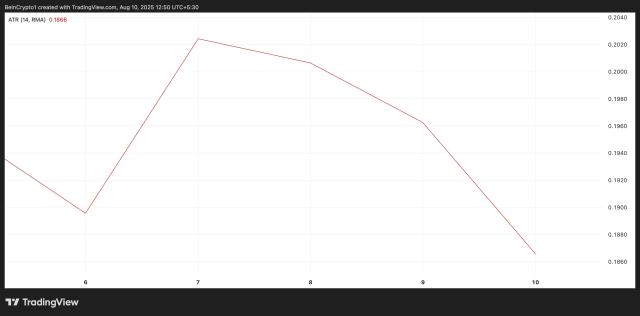At NapulETH 2025, held in Naples from 17-19/07, Italian legislator Marcello Coppo discussed the future of digital asset regulations in Italy with industry experts.
In a conversation with BeInCrypto, the Parliamentarian from Fratelli d'Italia shared his views on Cryptoasset taxes, the idea of a national Bitcoin reserve, and what widespread acceptance might look like in one of Europe's most developed Cryptoasset markets.
From Cryptoasset skepticism to strategic policy
Coppo is not just a politician—he is also a lawyer with extensive experience in promoting legal clarity and political leadership in complex regulatory issues.
As a member of the "Public and Private Work Committee" of the parliament, his work focuses on protecting citizens' interests in rapidly developing fields—including Cryptoassets.
One of his most notable efforts was opposing strong tax proposals on Cryptoasset profits.
Opposing excessive Cryptoasset taxation
BeInCrypto: One of the Meloni government's first major steps was introducing a tax framework for Cryptoassets. What drove that decision?
Marcello Coppo: We believe every part of the economy deserves clear rules. Cryptoassets are no exception. Our goal is to create a structured environment that encourages legitimate projects and creates value for the country.
BeInCrypto: The law treats Cryptoassets as an investment asset with Capital gains tax applied. Is that a fair compromise?
Coppo: I was one of the key voices pushing to reduce taxes to 26%. Initially, the proposal targeted 42%.
Unfortunately, an additional 33% tax is expected to take effect in 2026, which I strongly oppose. I submitted an official proposal to Parliament, and the government accepted it.
Although I cannot yet guarantee the outcome, I am working to either balance Cryptoasset taxes with other Capital gains—or at least delay this increase.
The upcoming budget law will start in the Senate, so I will not be directly involved in that stage.
However, there is a legislative window at the end of the year—"Milleproroghe"—beginning in the Lower House. That is when I plan to intervene if necessary.
Should Italy adopt a strategic Bitcoin reserve?
BeInCrypto: There is an increasingly growing discussion in the US about holding Bitcoin as part of the national reserve. Could Italy consider something similar?
Coppo: While not a current priority, I believe this topic is inevitable. Italy owns one of the world's largest gold reserves, but that doesn't mean we cannot diversify.
We first face practical obstacles. There is no budget classification for seized or confiscated Cryptoassets.
Currently, Cryptoassets seized in legal investigations are being dispersed across different jurisdictions, without centralized oversight or accounting.
The government has not yet commercialized these assets, but if Bitcoin is considered part of a diversification strategy, we need a way to track and evaluate it.
Ultimately, we will need to decide. Should we liquidate these assets or keep them as part of national assets?
The term "strategic reserve" sounds impressive, but technically, these assets already belong to state property—like state-owned buildings.
Some real estate has depreciated over time; Bitcoin might provide better returns in the long term.
Towards widespread acceptance
Although a recent Gemini report called Italy one of Europe's most developed Cryptoasset markets, Coppo sees a long way to go for public understanding and political acceptance.
BeInCrypto: Cryptoassets still face political skepticism. Do you think they will ever be considered a core part of the financial system?
Coppo: We need to make a clear distinction. Bitcoin is serious—it has resilience. Then there are altcoins with potential. And then there are what I call "junk coins"—those should be completely avoided.
When I talk about Cryptoassets, I mean the trustworthy ones. But let's be honest. If I go to the supermarket and ask someone—say, Maria—what she knows about Cryptoassets, the likely answer will be "not much." That shows acceptance is still low.
The real challenge now is public education and broader acceptance. That is where we should focus.






